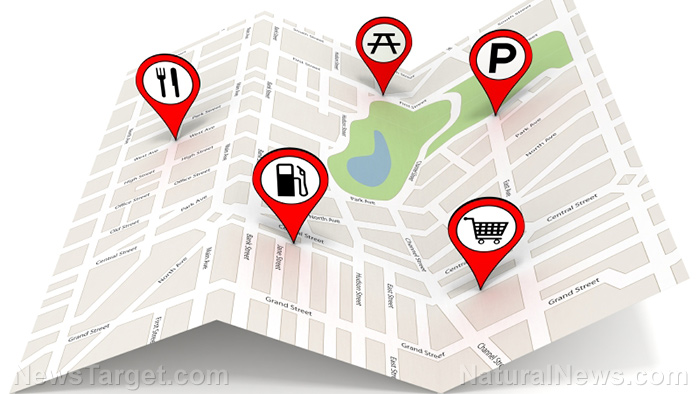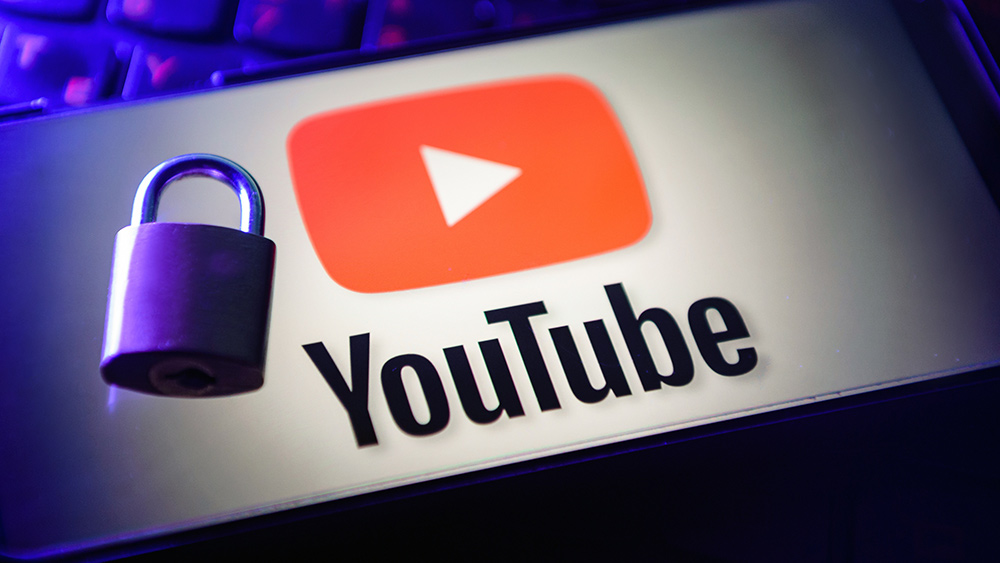Technocratic OVERREACH: Santa Clara County sued for warrantless surveillance of a church’s foot traffic patterns via geofencing app
10/06/2023 / By Belle Carter

Recently, San Jose’s Calvary Chapel filed a lawsuit against Santa Clara County, alleging that the local government committed illegal surveillance back in the Wuhan coronavirus (COVID-19) pandemic era.
Constitutional questions were raised when the county accessed data in 2020 on the church’s foot traffic patterns collected by a research team from Stanford University. The information was reportedly used to levy heavy fines against the church for violating COVID-19 restrictions regarding public gatherings. According to court documents, said researchers acquired the information, which originated with Google Maps, from the location data company SafeGraph, which is also being sued by Calvary.
SafeGraph’s Senior Vice President of Operations Nicole Berger, claimed that the university researchers violated the company’s terms of service and non-commercial research agreement. For its part, Google has since cracked down on third-party vendors, though it still uses location and other data for its own operations. “We are in the space between the emergence of this technological practice and courts having ruled on its constitutionality,” said Alex Marthews, national chair for Restore the 4th, a nonprofit organization dedicated to the protection of the Fourth Amendment, which protects Americans’ rights against “unreasonable search and seizure.”
The new lawsuit stemmed from an earlier court case, in which the church was ordered to pay over $1 million in fines for violating county public health orders in 2020, by holding services on its premises without social distancing or masking. During the trial, it came to light that a research team headed by Stanford University Professor of Administrative Law and Statistical Inference Daniel Ho had used “geofenced” data to provide Santa Clara County health officers with analysis on aggregate visits to the said church from January 1, 2020, to February 28, 2021.
In his 2022 “expert witness report,” Ho said the dataset he analyzed “was widely used during the pandemic to understand social distancing by public health authorities, including the Centers for Disease Control and Prevention, the California governor’s office, Los Angeles, San Francisco, San Jose, and Santa Clara County,” where information about “points-of-interest” included 1,576 religious organizations.
According to church attorneys, the county was arguing “that, as long as they call it research, any level of government can target and spy on any individual or group at any time for any duration and, if they so choose, they can wield the collected data against said individuals or groups who oppose their orders.”
Meanwhile, the data broker SafeGraph insisted that their information is anonymized. However, there were no particular individuals the government was suspicious of, Adam Schwartz of the Electronic Frontier Foundation told RealClearInvestigations. “It’s a dragnet.” He added that there is no guarantee that the data collected through geofencing stays anonymous. “It is often very easy to take supposedly de-identified data and re-identify a person,” said Schwartz, “And it’s very, very easy to do that with location data.” The same phone spotted in two locations, he said, can be easily traced to a specific individual “because people have very unique travel and location patterns.”
Calvary Chapel attorney Mariah Gondiero pointed out that the right to privacy is “really going to be the key to this case,” with an overarching question of whether congregants have a reasonable expectation of privacy while in church. “You absolutely need a warrant,” she said. Critics also emphasized that even if it is backed by a warrant, law enforcement’s use of geofencing violates the Fourth Amendment.
The global location intelligence market was estimated at $16 billion last year, according to the business consulting firm Grand View Research, which predicts that figure will grow to $51 billion by 2030.
Tech giant Google to pay $93M in settlement for deceptive location tracking
Businesses use geofencing for many purposes, such as location-based advertising, consumer data collection, and employee monitoring. But the overreach is “inevitable” for greedy companies.
Big Tech Google was recently ordered to pay $93 million in a settlement over its collection of location data even after users turned off their location history. The tech giant was also involved in an ongoing dispute in an Oakland, Calif., U.S. District Court over the company’s “Real Time Bidding” process, whereby customers’ personal information is auctioned off to advertisers so that they can place targeted ads.
“Our investigation revealed that Google was telling its users one thing — that it would no longer track their location once they opted out — but doing the opposite and continuing to track its users’ movements for its own commercial gain,” California Attorney General Rob Bonta said in a statement announcing the settlement. “That is unacceptable, and we are holding Google accountable.”
It was discovered that there was a central discrepancy between how Google represented its handling of user location data and how the attorney general’s office alleged it actually handled it. While the tech giant gave people the option to turn off their “location history” and explicitly stated the company would not track the places they went if they chose this option, it still collected and stored a user’s location data through other sources, including through a user’s “web and app activity” tracker, which the attorney general said continues to be on by default. The AG also accused Google of “deceiving users about their ability to opt out of advertisements targeted to their location.”
While the Big Tech company did not admit any fault, it agreed to several other terms in addition to paying the hefty settlement amount of almost $100 million. These included: being more transparent about its location tracking practices; notifying users before location information is used to build ad profiles to target specific people; and getting approval from Google’s internal privacy working group before making any material changes to privacy. (Related: HERE WE GO AGAIN: Google hides campaign sites of Trump, RFK Jr. and other Republican candidates; Biden dominates top search results.)
Check out EvilGoogle.news for stories related to Big Tech’s collusion with Big Government to surveil the people.
Sources for this article include:
Submit a correction >>
Tagged Under:
big government, Big Tech, cell phone data, Collusion, computing, cyber war, Fourth Amendment, future tech, geofencing, Glitch, information technology, insanity, location access, medical fascism, Medical Tyranny, overreach, privacy watch, right to privacy, smartphone apps, spy gate, surveillance, technocrats, tracked, unconstitutional
This article may contain statements that reflect the opinion of the author
RECENT NEWS & ARTICLES
COPYRIGHT © 2018 EVILGOOGLE.NEWS
All content posted on this site is protected under Free Speech. EvilGoogle.news is not responsible for content written by contributing authors. The information on this site is provided for educational and entertainment purposes only. It is not intended as a substitute for professional advice of any kind. EvilGoogle.news assumes no responsibility for the use or misuse of this material. All trademarks, registered trademarks and service marks mentioned on this site are the property of their respective owners.


















